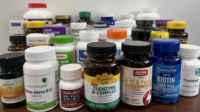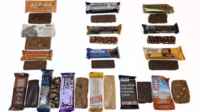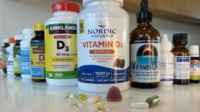
Answer:
Although a gluten-free diet can resolve nutrient deficiencies in many people with celiac disease — a condition that results in damage to the lining of the small bowel that can lead to malabsorption — research has found that certain nutrient inadequacies may still persist among people with celiac disease, as well as those with gluten sensitivity, even after a gluten-free diet is initiated. The nutrient inadequacies are thought to be due to low nutrient intake rather than disease activity (Jivraj, Nutrition 2022).
Lower nutrient intake associated with a gluten-free diet may occur because processed and packaged gluten-free foods — particularly gluten-free flour alternatives — are not required to be fortified with folic acid, iron, thiamin, riboflavin and niacin, which is otherwise mandatory in the U.S. and Canada for wheat flour. Consequently, packaged and processed gluten-free products tend to be less nutritious than gluten-containing equivalents: For example, a study in Canada found that, on average, gluten-free grain/cereal-based foods contained 55% less iron and 44% less folate than similar gluten-containing foods. Gluten-free pasta contained 63% less fiber than gluten-containing pasta (Jamieson, PeerJ 2018). Consequently, it is important to ensure that a gluten-free diet contains sufficient amounts of nutrients. Supplementation may be necessary for people following a gluten-free diet that relies heavily on processed and packaged foods.
Sign in as a member to learn what nutrients can be inadequate in a gluten-free diet and other safety concerns to consider when following a gluten-free diet. Nutrients discussed include B vitamins such as folate, vitamin B-12, niacin and thiamin, iron, vitamin D, and fiber. Also learn how much gluten may be in supplements or prescription or OTC pills, how to tell if a supplement or drug is gluten-free, and how to find gluten-free supplements on ConsumerLab.com.
Join today to unlock all member benefits including full access to all CL Answers and over 1,400 reviews.
Join NowAlready a member? Sign In Here.
Join now at www.consumerlab.com/join/














Submit your comment
This feature is restricted to active members.
Join now to add comments and get all member benefits, including over 1,400 reviews.
Join NowAlready a member? Sign in here.